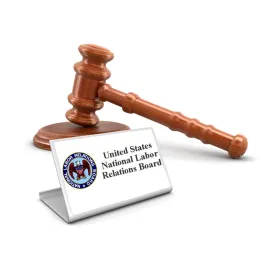The NLRB’s “contract coverage” standard for determining whether a collective bargaining agreement privileges an employer to unilaterally change terms and conditions of employment received support last week from a federal court of appeals, further solidifying the legitimacy of the relatively new standard at a time when the Board is undergoing a change in leadership and policy objectives. As announced last Thursday, the new General Counsel wants to revisit the Second Circuit-approved “contract coverage” standard, suggesting that this employer-favorable development may be fleeting when it comes to the NLRB. IBEW Local 43 v. NLRB, Case No. 20-1163 (2d Cir. Aug. 12, 2021).
Procedural History
The union filed an unfair labor practice charge against the employer, claiming the employer violated the Act by implementing a 6-day workweek without first giving it notice and an opportunity to bargain. While the administrative law judge (ALJ) concluded the employer did violate the Act, the Board reversed the ALJ’s decision and dismissed the complaint. Shortly before deciding this case, the Board abandoned its long-standing “clear and unmistakable waiver” standard for evaluating the lawfulness of employer’s unilateral changes to terms and conditions of employment and adopted the “contract coverage” test.
Applying the new “contract coverage” standard, the Board determined that the parties’ collective bargaining agreement permitted the employer to change employee schedules without first bargaining with the union. Reading the management rights provision, which granted the employer the exclusive right to “determine the reasonable amount and quality of work needed”, together with a provision providing for the payment of overtime wages for work performed “weekly in excess of forty (40) hours, or on scheduled days off,” the Board held that the CBA authorized the employer to determine the amount of work it needed employees to perform and to require employees to work in excess of 40 hours a week.
Legal Analysis
On review, the Court considered both the Board’s adoption of the new “contract coverage” standard and its application of this standard to the facts. In considering which interpretive method should be applied to determine whether a CBA grants an employer the right to act unilaterally, the Court found the Board’s reasoning for breaking with its precedent to be “thorough and carefully reasoned” and adopted the “contract coverage” test.
Agreeing with the Board’s assessment, the Court explained that the previous “clear and unmistakable waiver” standard tended to undermine contractual stability by denying the effect of contract provisions that failed to meet this “exacting” standard. Under the “clear and unmistakable waiver” analysis, the CBA had to “unequivocally and specifically” permit the employer’s action in order for the Board to find that the union waived its right to bargain over the action at issue. With respect to the “contract coverage” standard, which considers whether the employer’s action falls within the “compass or scope” of the CBA, the Court reasoned that the Board’s new test comports with ordinary principles of contract interpretation “while preserving meaningful limits on unilateral employer action”. As such, the Court adopted the Board’s “contract coverage” standard as the governing standard for unilateral changes.
Applying the “contract coverage” standard to the facts before it, however, the Court disagreed with the Board’s interpretation of the parties’ collective bargaining agreement. The Court found that the plain language of the CBA placed restrictions on employees’ hours and work schedules, providing that “[t]he workweek shall be forty (40) hours during any one workweek or eight (8) hours during any workday” and specifying that employees’ normal schedule will consist of either a 5-day workweek of 8-hour shifts or a 4-day workweek of 10-hour shifts. While the CBA stated that certain specified deviations from this normal work schedule were permissible, it required the employer to follow a two-step process before making the limited changes permitted by the CBA. Contrary to the Board, the Court did not interpret the contractual right to determine the “amount” of work needed and the requirement to pay overtime wages for work in access of 40 hours in a week as giving the employer the right to mandate overtime work. Therefore, the Court held that the CBA did not privilege the employer to unilaterally impose a 6-day workweek and vacated the Board’s dismissal of the complaint.
Takeaways
The Second Circuit’s approval of the Board’s “contract coverage” test may take on greater significance as the composition of the NLRB changes under the Biden Administration. As we discussed here, the newly sworn-in General Counsel of the NLRB, Jennifer Abruzzo, recently issued a memo outlining the Board’s enforcement priorities. Among other directives, the memo requires NLRB Regions to submit cases involving application of the “contract coverage” standard to the Office of the General Counsel for advice prior to any decision. The memo signals a likely change to the Board’s standard for employer unilateral changes, meaning the Board may return to its prior standard requiring a “clear and unmistakable” waiver of a union’s right to bargain before an employer may act unilaterally. However, favorable decisions from federal courts of appeal like this offer a glimmer of hope for employers where decisions by the Board can be appealed, and potentially vacated, by a federal appellate court on review. As always, we will continue to monitor and report on developments at the NLRB.





 />i
/>i
